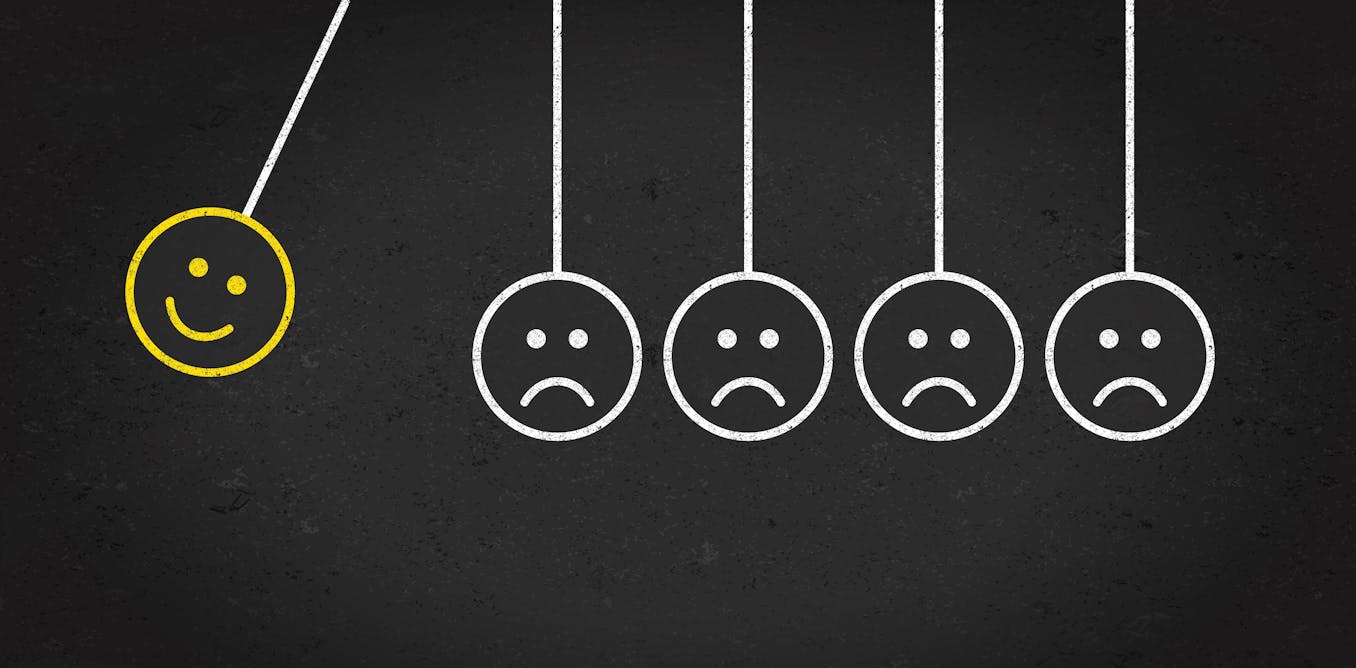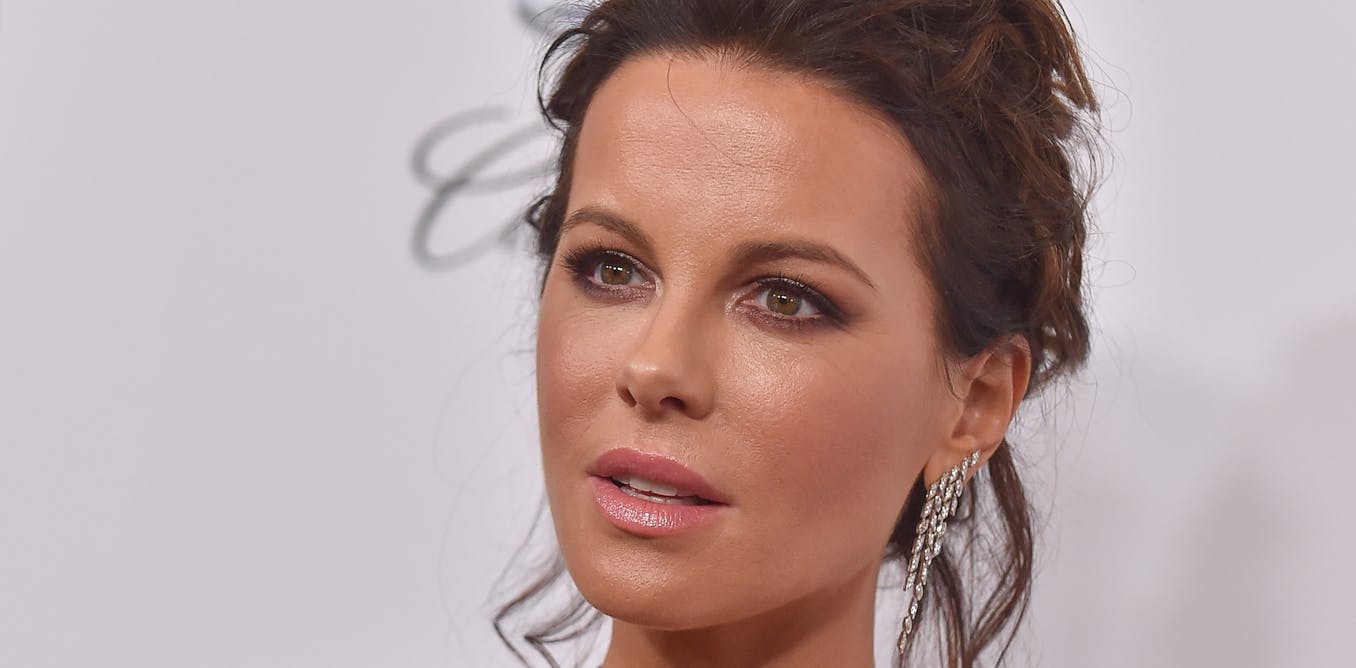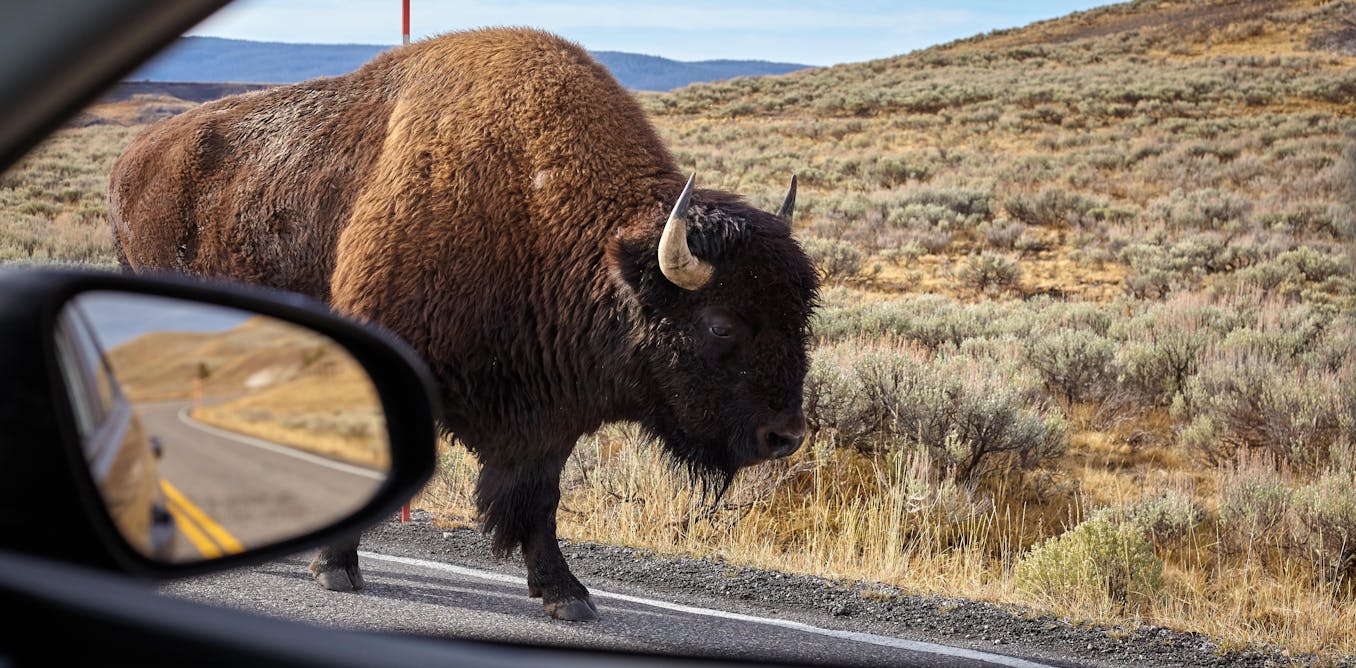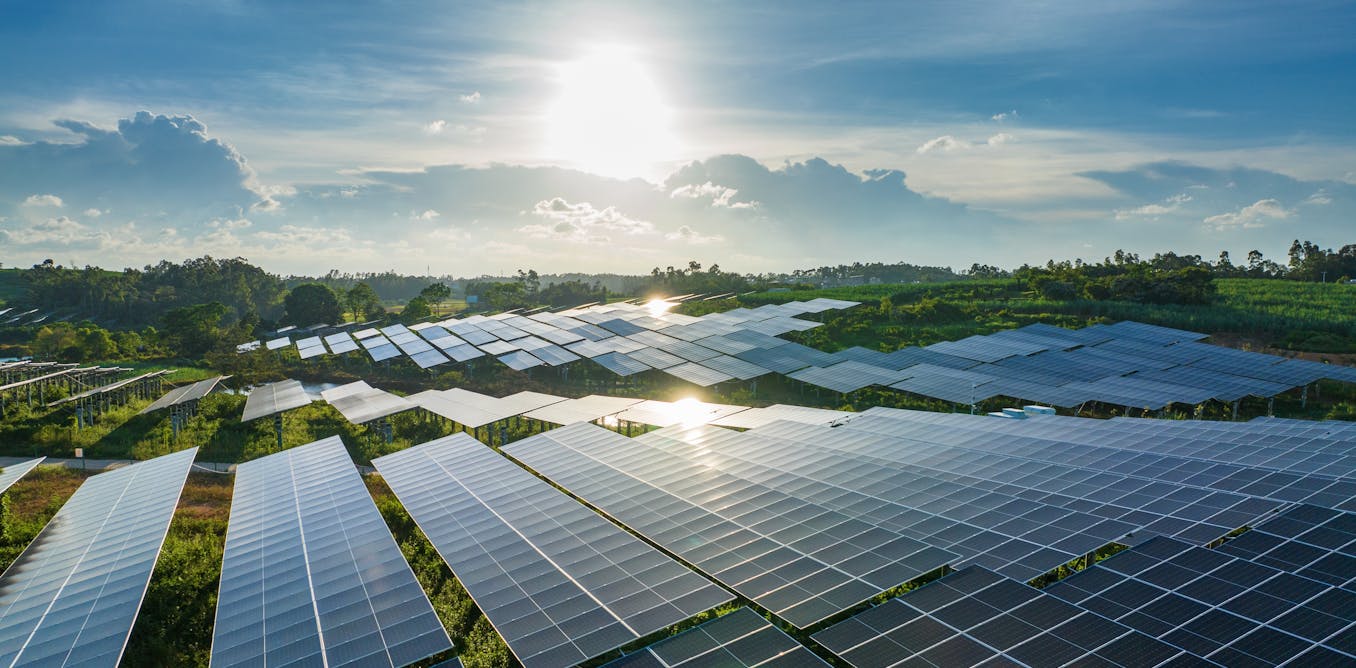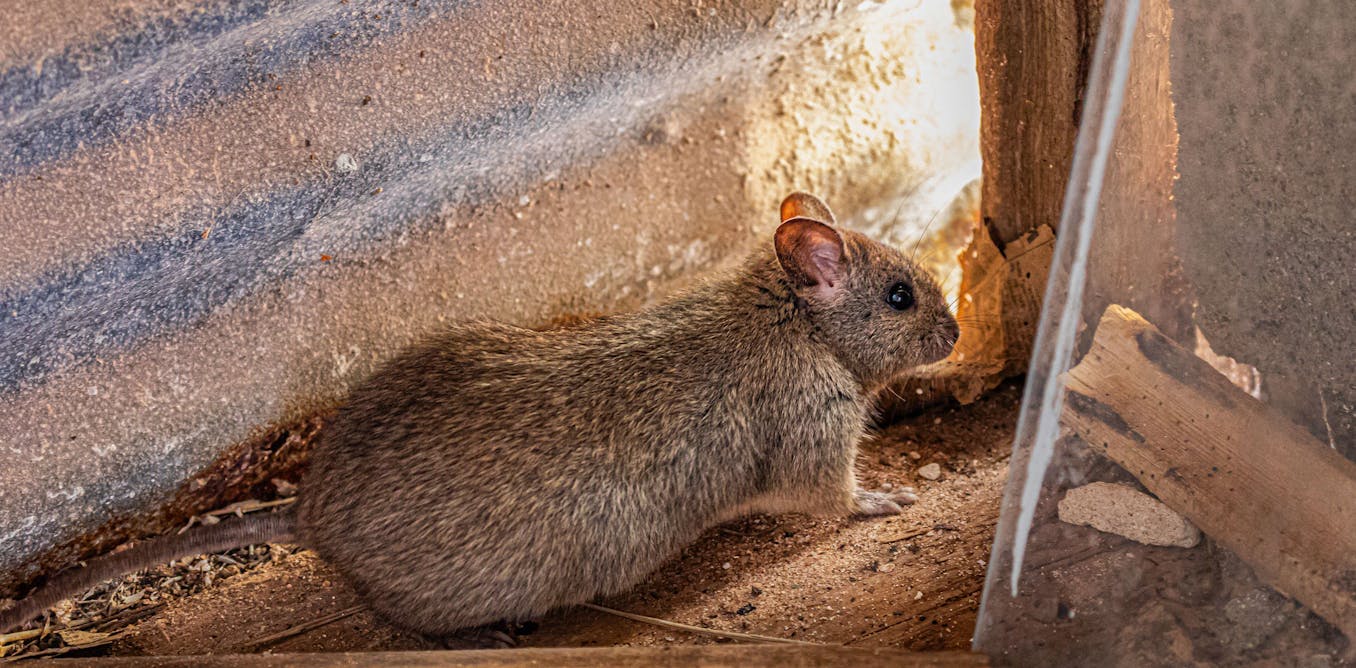What Makes Someone Vote Against Their Political Party? | Sarah Longwell | TED
we need to find a way to bridge the gap and speak to people in terms that they understand and resonate with. This means understanding that tribal loyalty often comes before political ideology or concern for the democratic process. It means creating safe spaces for people to express dissenting views and providing them with trusted messengers who they can relate to and trust.
The success of Republican Voters Against Trump in the 2020 election demonstrates that people are willing to vote against their political tribe when given the proper motivation and support. The key is understanding that most people don’t view their decisions through the lens of democracy over party, but rather through their own values and the preservation of their tribe.
Moving forward, it’s crucial to continue finding ways to engage with voters on a personal and relatable level. Engaging in constructive conversations and understanding each other’s perspectives will be essential in bridging the partisan divide and addressing the threats to democracy that exist within our current political climate. By building new tribes that prioritize democratic principles and values, we can take steps toward a more united and inclusive political landscape.
Watch the video by TED
Hi, guys! I’m Sarah Longwell, and my favorite TV show is “Survivor.” Now, you know this show, it’s the one where they take a bunch of people, put them on a desert island, they make them make fire and, like, houses, or, like, a shelter. And they make them a tribe. And then, every week, they vote somebody out of the tribe.
This show’s been on for, like, 45 seasons. There’s versions of it in 50 different countries. And I think the reason that this show is so popular and enduring is because we can all really relate to that anxiety of being rejected by our tribe. Now, social scientists, anthropologists, people who study people,
They will tell us that there is nothing more traumatic for a human than getting kicked out of their tribe. We all want to fit in, we all crave community and belonging. We’ve had tribal instincts for as long as we’ve been around. Right? Humans have. It’s hardwired in there,
As part of our survival instincts, so we don’t get eaten by lions or bears. And right now, our politics is defined by partisan tribalism. Now, the nice people at TED … when they asked me to give this talk, they gave me the topic “Democracy over party,”
Which essentially means asking people to go against their tribe. And I rejected this topic, at first — I didn’t want to do it, because I’ve listened to thousands of American voters, and I know that they don’t feel nearly the connection to democracy that they do to their political team, their partisan tribe.
In fact, in America, most voters don’t think about democracy at all. I learned this one the hard way, back in 2018. I was just your average, traditional lesbian Republican … And I was super alarmed by what Donald Trump was doing to my party. And so I thought somebody should primary him. And so I was running around, talking to a governor and some congressmen, some other people, and I was like, “You’ve got to primary this guy.”
But they all wanted to know one thing: if they ran a primary against Trump, could they win? So I started doing a bunch of polling and focus groups so I could go make the case, to these potential candidates, that, of course, Republicans wanted an alternative to Trump.
Of course they thought that he was a threat to democracy. Of course they were up for putting democracy over party. Nope. Not at all. They liked Trump fine. They thought he was funny, they thought he was a good businessman, they liked it that he “told it like it was” and that he wasn’t a regular politician. And I was so startled by how immune these voters seemed to Trump’s antidemocratic behavior
That I started doing focus groups all the time, because I was like, “I’ve got to figure out what is going on.” Polling is whatever, but the thing that I like about focus groups is you learn as much from what voters don’t say as what they do say.
I have never heard a voter say, “Boy, I really like Trump, because he has authoritarian vibes.” They just don’t care about the antidemocratic behavior, or they don’t even clock that it’s antidemocratic. Trump praises dictators? OK. He hijacks American foreign policy for his own political purposes and gets impeached for it? They don’t care. He uses the White House to enrich himself and his family? Not worried about it.
Trump’s a member of their tribe. Right? So he gets the benefit of the doubt. Even Republican voters who didn’t like Trump, even they still recoiled at direct attacks on him, especially if those attacks were coming from outside the tribe. Right? They’re coming from … “the deep state, the media, Democrats —
Never Trumpers like me.” So, primary is off the table, we’re not doing that. So we had to figure out how to beat Trump in the general election. And I knew that meant building the necessary permission structures to help disaffected Republicans break from their tribe and vote against Trump.
That’s how we were going to make the margins. And to do that, I knew we needed trusted messengers, right? Messengers that these folks trusted. The problem was they didn’t trust anybody. They didn’t trust institutions or experts, they didn’t even trust Republican politicians. But then, we had a little bit of a breakthrough.
So in the focus groups, we started showing people video testimonials. Little videos, just of regular people, Republicans, talking about why they couldn’t vote for Trump, again, in 2020. And suddenly, people were listening. Because it turns out the one group they do trust … is people like them. Right? Members of their tribe
Who don’t claim any special knowledge or expertise. So once we realized this, we started asking Republicans who didn’t want to vote for Trump in 2020 to send us their stories, to send us more of these videos. God, it was easier, because it was the pandemic,
And so lots of people, they’d make the videos on their phone. But actually, it was really hard, at first. People were nervous about saying they weren’t going to vote for Trump publicly. They didn’t want their neighbors to find out, they didn’t want their spouse to find out,
They didn’t want their parents to find out, because that’s what tribalism does, right? It makes us afraid to go against our tribe. So we fought really hard, scrapped, for the first 100. But once we had the first 100, we knew we had a new tribe. We called it “Republican Voters Against Trump.”
People could maintain their Republican identity. So once we launched Republican Voters Against Trump, went public with it, all of a sudden, testimonials came flooding in, unsolicited, because there were lots of people who felt this way. They just needed a tribe to attach to, to feel safe, to feel secure.
There is a reason the phrase “safety in numbers” is a cliché. But here’s the thing. None of these testimonials mentioned democracy. Instead, they talked about why they became Republicans in the first place. What their values were. And why those values meant they couldn’t vote for Donald Trump.
They also talked a lot about how painful it was going to be to vote for Democrats. They really didn’t want to do that. But they did. But none of them said that they were doing it to put democracy over party. But that’s exactly what they did, when they broke from their tribe
And voted against a president who was a threat to democracy. Now I know you’re thinking, “OK, Sarah, but that’s 2020. What about 2022? After the attack on the Capitol, and when there are a bunch of Republican candidates running on platforms saying that the election was stolen?” Not really. Some Democrats talked about democracy,
But swing voters, the ones that were going to make up the margins, they never talked about democracy in the focus groups. What they did talk about was that they didn’t want to vote for Republicans because they were too extreme. Mainly on abortion. They didn’t think they were a threat to democracy.
They just thought they were nuts. But here’s the thing. Just because voters don’t talk about democracy doesn’t mean they don’t understand and value democracy. It’s just that, in America, democracy’s like the air we breathe, right? It’s just that thing we do here. And it’s so ingrained in who we are
That it’s really hard to see when it’s under threat. And that’s why we can’t just say “democracy” and expect everybody’s going to have a shared understanding of what that is and know what we’re talking about. Right now, if you talked to a Republican, and you said, “What’s the biggest threat to democracy?”
They’d tell you, “Democrats, because they rigged the 2020 election.” If you talked to a Democrat and said, “What’s the biggest threat to democracy?” they’d tell you it’s Republicans, because they attacked the Capitol and denied the election results in 2020. But this doesn’t mean we should stop talking about democracy. On the contrary,
We need to talk about democracy better. [If] we’re going to ask people to put democracy over party, then we better explain to people what democracy is and why it’s good. Why the things that make up a liberal democracy — pluralism, free speech, the rule of law —
Why those things underpin a free society and make us who we are. Because if we can tell a better story about democracy, we can tell a better story about America, where our politics isn’t zero-sum, right? I win means you lose. Because the big tribe that is America,
The big tribe that’s predicated on our democratic values, that tribe is big enough and strong enough, expansive enough, to hold all the other little tribes inside of it, from your progressive Bernie Bros to your evangelical Christians to your basic lesbian Republicans. But we’ve got to attach people to that bigger tribe. I don’t have to tell you, we’re in a very precarious moment for American democracy. And if democracy can’t hold in America, it’s going to make it a lot harder for democracy to survive in other countries. But we are not going to stave off
This dangerous version of the Republican Party by telling people to put democracy over party. We’re going to do it by winning elections. We’re going to do it the same way we built Republican Voters Against Trump, by building a dominant political coalition using permission structures and trusted messengers. I focus on the center-right,
Lots of people focus on other margins, but we’re going to have to claw for every margin. Because if we can win right now, in the short term … then in the long term, we can set about telling this better story about democracy. Because here’s the good news.
The fact that voters don’t think much about democracy is actually our greatest opportunity. It means that we have the chance, those of us who are trying to defend democracy around the world, it means that we have the chance to rekindle the love of democracy for a new generation.
And if we can do that, we won’t have to ask them to put democracy over party. Thanks.
About TED
The TED Talks channel features the best talks and performances from the TED Conference, where the world’s leading thinkers and doers give the talk of their lives in 18 minutes (or less). Look for talks on Technology, Entertainment and Design — plus science, business, global issues, the arts and more. You’re welcome to link to or embed these videos, forward them to others and share these ideas with people you know.
Video “What Makes Someone Vote Against Their Political Party? | Sarah Longwell | TED” was uploaded on 02/08/2024 to Youtube Channel TED






